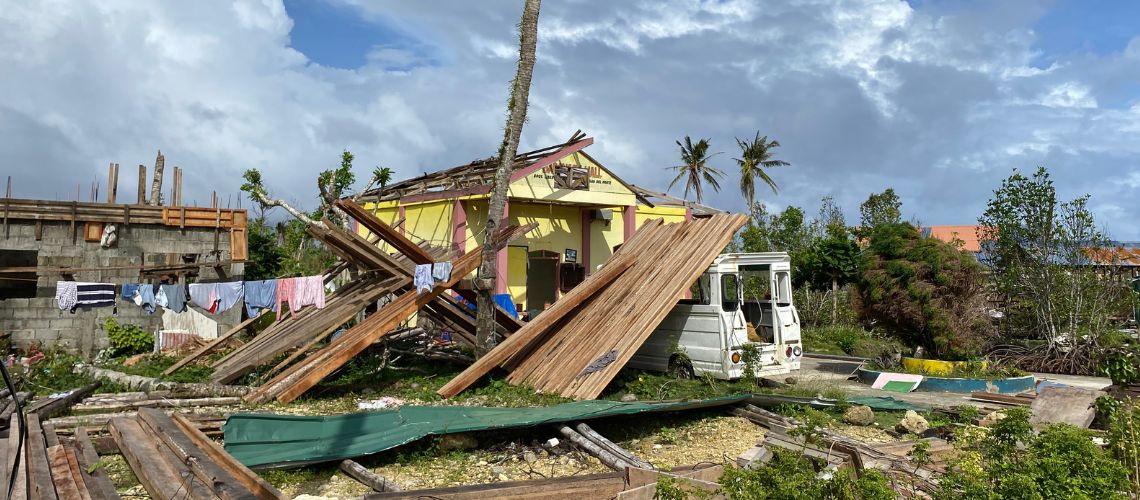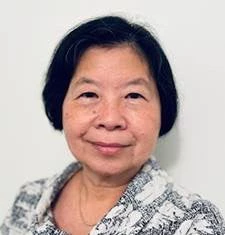 Aftermath of Typhoon Odette
Aftermath of Typhoon Odette
Landmark climate reports launched by the Intergovernmental Panel on Climate Change this year make it clear that we urgently need a rapid transition to low-carbon development to tackle the climate crisis. For the first time, these reports focus on the people at the heart of transformative climate action and underscore the social aspect of climate mitigation and adaptation.
For decarbonization to be viable, we need to pay much greater attention to the lives and livelihoods affected by climate change. Social inclusion and equity are paramount in tackling climate change. Including local people, whose perspectives and voices may otherwise not be heard, can generate more effective pathways to resiliency and accelerate climate action.
With extensive coastlines, many island nations, and low-lying territories, the East Asia and Pacific region is highly susceptible to climate-related disasters. The region has developing and underdeveloped economies where tackling climate challenges must be accompanied by efforts to address widening inequalities. Poor and marginalized groups are often disproportionally affected by climate change. Moreover, the region faces uneven recovery where 8 million people in East Asia and Pacific fell back into poverty during the pandemic.
To address these challenges, the World Bank has ongoing initiatives on the social dimensions of climate change. Its East Asia Pacific Social Sustainability and Inclusion (SSI) team has developed a systematic agenda to anchor the social dimensions of climate change works through four key areas:
The first area is facilitating locally led climate action, which puts communities at the forefront of climate adaptation and mitigation.
The World Bank supports community-led climate-responsive approaches that ensure community access to climate finance and empower people to drive their local climate agenda. It is estimated that less than 10% of global climate finance currently flows to local levels, but this approach can ease the blockage.
In the Philippines, World Bank support to recovery from Typhoon Haiyan (2014) and Typhoon Odette (2021) was channeled through a national community-driven development program that enabled communities to make decisions and allowed for quick and cost-efficient implementation. In Indonesia, where the World Bank’s long-standing engagement on community-driven development has contributed to the integration of community platforms in local government systems and direct fiscal transfers of US$8 billion per year, participatory climate vulnerability assessments and innovative methods for communicating climate information to communities have informed village development planning processes.
Our ongoing initiatives in Fiji, Indonesia, Lao PDR, and Vietnam are developing mechanisms to ensure equitable distribution of carbon payments from Forest Carbon Partnership Facility, which will be financed from a new program, Enhancing Access to Benefits while Lowering Emissions.
Second, the work on ‘Just Transition for All’ focuses on facilitating a whole community approach in the transition to a low-carbon economy, in key sectors such as energy, agriculture, transport, and forestry/land use.
Transition comes at a cost to people. While impacts on job losses in traditional industries such as coal mining are widely acknowledged, there are a range of subsequent impacts on local communities, including loss of access to basic services and housing, changes in social fabric and community identity, and out-migration. We work with the stakeholders to analyze and develop plans and policies that can mitigate social and environmental impacts of change, ensuring an inclusive process and equitable outcomes.
Work is underway in China and Indonesia to analyze the social dimensions of energy transition. In China, we are developing a social sustainability assessment framework to make planning for coal transition inclusive at different scales, including in communities, coal companies, coal producing regions and national levels. In Indonesia, we are conducting studies to identify the social and distributional impacts of transition in coal producing regions, initiate policy dialogues with multiple levels of government, and identify local planning processes that are fair for all.
The third area corresponds to internal climate-induced migration / mobility. The World Bank’s Groundswell report shows the East Asia Pacific region is among the worst affected by climate change, and could see over 48 million “internal climate migrants” by 2050.
Further analysis is being carried out in Pacific countries – particularly in Solomon Islands – and in Vietnam on the experiences of local communities in climate migration hotspots and on climate induced migration and mobility. This work explores local communities’ understanding, knowledge, and adaptation strategies, and will be used to develop strategies for inclusive climate adaptation planning in climate migration hotspots.
Our fourth area of focus is supporting people-centered climate policies that can ensure climate action at the country level is inclusive. One example of this work is strengthening community dimensions in land use management programs.
Our analysis on the social dimensions of climate change is feeding into key Bank diagnostics such as the Country Climate and Development Reports (CCDRs). In Vietnam, for example, our vulnerability analysis has revealed uneven geography of vulnerabilities to climate change among different social groups. We also facilitate citizen engagement and stakeholder dialogues on climate policies and programs. In the Philippines, for instance, we have developed web-based social media monitoring and targeted surveys, using natural language processing and artificial intelligence, to capture citizens’ perceptions and voices on climate change issues. In Indonesia, we are using community platforms as entry points for promoting local communities’ engagement into sustainable landscape management actions.
A climate resilient future is possible, but only if we start engaging people who are sidelined from the conversation . Bringing in these voices can help us better identify climate challenges and ways of addressing them that could ensure equitable and sustainable outcomes.



Join the Conversation